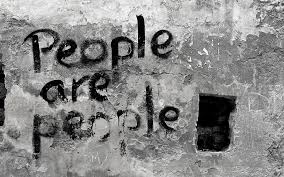Contents
Introduction
Jesse Graham is an influential American social psychologist renowned for his work on moral psychology and political ideology. As a professor at the University of Southern California (USC), Graham has made significant contributions to understanding how morality and political beliefs are shaped by both innate psychological mechanisms and cultural contexts. He is best known for co-developing Moral Foundations Theory (MFT), a groundbreaking framework that explains the diverse moral principles that guide human behavior across different societies.

Graham’s research has provided insight into how ideological differences—particularly between liberals and conservatives—stem from underlying moral values, and his work has had wide-reaching implications for fields such as politics, sociology, and psychology. This article explores Jesse Graham’s life, major contributions to the field of moral psychology, and the significant influence his research has had on understanding political ideology, moral values, and human behavior.
Early Life and Education
Jesse Graham was born in 1978 and grew up in the United States, where his interest in human behavior and social norms began early. He was particularly fascinated by the role morality plays in shaping societies, noticing how various cultures and individuals prioritized different moral values. This curiosity about the moral dimensions of human interaction inspired him to explore deeper into psychology, setting the stage for his later contributions to moral psychology and his research on how moral beliefs influence political and social attitudes.
Image Source: guilford.com

Educational Journey
| Aspect | Details |
|---|---|
| Undergraduate Education | Graham earned his Bachelor’s degree in Psychology from The University of Chicago, where he explored moral psychology and political ideology, laying the groundwork for his future research. |
| Graduate Studies | He pursued his Ph.D. in Social Psychology at The University of Virginia, studying under Jonathan Haidt. His doctoral research focused on the psychological basis of moral values and their connection to political ideologies. |
| Postdoctoral Work | Graham continued his postdoctoral research on moral psychology and political ideology at New York University (NYU), where he expanded on Moral Foundations Theory, further exploring the cultural and psychological aspects of morality. |
| Academic Positions | Graham is currently a professor of psychology at The University of Southern California (USC), where he leads research on morality, ideology, and political psychology, and continues to explore the moral underpinnings of human behavior. |
Influences and Early Career
| Aspect | Details |
|---|---|
| Jonathan Haidt | Graham’s mentor, Jonathan Haidt, was a pivotal influence in his academic career. Together, they co-developed Moral Foundations Theory, which became a central focus of Graham’s research. |
| Moral Philosophy | Graham’s early interest in moral philosophy and how societies determine right and wrong heavily shaped his work. He was influenced by philosophical discussions on morality from thinkers such as Immanuel Kant and David Hume. |
| Political Psychology | Graham’s research is rooted in the work of social psychologists who examined how ideology and morality intersect, such as Milton Rokeach and Philip Tetlock. |
| Cultural Psychology | Graham’s studies were also shaped by cultural psychologists who emphasized how morality and values are influenced by cultural norms and practices. This multidisciplinary approach helped him expand Moral Foundations Theory. |
| Social Justice | His interest in the moral dimensions of social justice and how different societies prioritize fairness and equality motivated his exploration of how moral values can influence political activism and social reform. |
Major Theories and Work

Moral Foundations Theory (MFT)
Jesse Graham is best known for co-developing Moral Foundations Theory (MFT), which posits that human morality is built upon five to six universal psychological foundations.
- The Five Core Moral Foundations: MFT outlines five primary moral foundations: Care/Harm, Fairness/Cheating, Loyalty/Betrayal, Authority/Subversion, and Sanctity/Degradation. A sixth foundation, Liberty/Oppression, was later added.
- Liberal vs. Conservative Morality: One of Graham’s key contributions was exploring how political ideologies are rooted in different moral foundations. His research shows that liberals prioritize Care and Fairness, while conservatives emphasize a broader range of foundations, including Loyalty, Authority, and Sanctity.
Image Source: writingworkshop.harris.uchicago.edu
Beyond MFT, Graham’s work has focused on the relationship between moral values and political ideologies, particularly in understanding how morality influences people’s voting behavior, political beliefs, and policy preferences.
- Moral Framing of Political Issues: Graham’s research has shown that framing political issues in terms of moral values can dramatically change how people perceive those issues. For example, emphasizing fairness in discussions of economic inequality appeals more to liberals.
- Moral Attitudes and Polarization: Graham’s work has examined how moral attitudes contribute to political polarization. His findings suggest that individuals often perceive the other side of the political spectrum as morally flawed, leading to increased hostility and division between liberals and conservatives.
Image Source: linkedin.com

Political Ideology and Moral Values
Famous Books and Publications

The Notebooks of Martha Graham

Blood Memory

Martha Graham: A Biography

Martha Graham: A Dancer’s Life
Influence on Contemporary and Future Psychological Research
- Political Psychology: Graham’s development of Moral Foundations Theory has had a profound influence on the study of political psychology, particularly in exploring how moral values shape political ideologies. His work has led to a deeper understanding of political behavior and voting patterns, influencing research on political identity and polarization.
- Cultural Psychology: Graham’s research has contributed to cultural psychology, particularly in understanding how moral values vary across different societies. His work has spurred further research into the cross-cultural differences in moral reasoning, providing insights into global variations in social norms and political attitudes.
- Moral Judgment Research: Graham’s work on moral foundations continues to shape the field of moral judgment. Researchers are now investigating how these foundations are formed, how they evolve over time, and how they influence individual and collective decision-making in both political and non-political contexts.
- Social Justice and Activism: Graham’s exploration of moral values and political ideology has inspired further research into how morality drives social justice movements and activism. His work has encouraged studies on the moral motivations behind movements for human rights, economic equality, and environmental justice.
- Cognitive Neuroscience of Morality: The implications of Graham’s work have extended into cognitive neuroscience, where researchers are exploring the neural underpinnings of moral values and how the brain processes moral decisions. This line of research is providing new insights into how moral foundations are represented and activated in the brain.
Psychologists and Educators Influenced by Jesse Graham

- Jonathan Haidt: As Graham’s mentor and collaborator, Haidt has worked extensively with him on Moral Foundations Theory, and their work together continues to influence studies on morality and politics.
- Peter Ditto: Ditto’s research on moral reasoning and motivated cognition has been heavily influenced by Graham’s work on moral foundations. Ditto explores how people’s moral beliefs shape their reasoning processes and how these beliefs align with their political ideologies.
- Kurt Gray: Gray’s research on moral psychology has been shaped by Graham’s work, particularly in understanding how people make moral judgments and how these judgments are influenced by contextual factors like culture and political ideology.
- Linda Skitka: Skitka’s work on moral conviction has drawn from Graham’s research on moral foundations. She studies how deeply held moral beliefs influence behavior and political engagement, exploring the consequences of moral certainty in political discourse.
- Matt Motyl: A political psychologist, Motyl has been influenced by Graham’s work on moral values and political ideology. His research focuses on how moral and ideological diversity affects social cohesion and political tolerance.
Impact on Psychology
- Influence on Modern Thought: Jesse Graham’s exploration of moral foundations has profoundly influenced contemporary psychology’s understanding of morality and its role in shaping political beliefs and behavior. His work emphasizes that moral values are not fixed but are influenced by both innate psychological mechanisms and cultural contexts. By highlighting the diverse moral principles that guide human behavior, Graham has provided a comprehensive framework for understanding political ideology, social behavior, and cultural differences. His research has impacted various fields, including psychology, political science, and sociology, offering new ways to approach political polarization and moral diversity.
- Legacy and Recognition: Graham’s contributions have earned him recognition within the field of social psychology, particularly for his work on Moral Foundations Theory. His research has been widely cited in studies of political ideology and moral judgment, and his work has been influential in public discourse about moral values and political divides. Graham’s research continues to shape contemporary thought on how morality influences human behavior, and his contributions will undoubtedly influence future generations of psychologists, political scientists, and sociologists.
Conclusion
Jesse Graham’s work on moral psychology and political ideology has had a lasting impact on the field of psychology, providing a deeper understanding of how moral values shape human behavior and political beliefs. His co-development of Moral Foundations Theory has offered a new framework for understanding the roots of political polarization and moral diversity across cultures. Graham’s research continues to influence the study of political psychology, moral judgment, and cultural values, ensuring that his legacy as a key figure in moral psychology endures.
Bibliography
- Graham, J., Haidt, J., & Nosek, B. A. (2009). Liberals and Conservatives Rely on Different Sets of Moral Foundations. Journal of Personality and Social Psychology.
- Graham, J., & Haidt, J. (2010). Beyond Beliefs: Religious Morality and Political Psychology. Psychological Inquiry.
- Graham, J., Haidt, J., Koleva, S., Motyl, M., Iyer, R., Wojcik, S., & Ditto, P. H. (2013). Moral Foundations Theory: The Pragmatic Validity of Moral Pluralism. Advances in Experimental Social Psychology.
- Graham, J., & Haidt, J. (2012). The Moral Roots of Liberal and Conservative Ideologies. Personality and Social Psychology Bulletin.
- Gray, K., & Graham, J. (2017). The Depth of Moral Differences Across Ideologies. Psychological Science.
- Ditto, P. H., & Graham, J. (2016). Moral and Ideological Coherence: A Psychological Perspective on Political Ideology. Advances in Political Psychology.
- Motyl, M., & Graham, J. (2014). Moral Diversity and Political Division: The Role of Ideology in Shaping Moral Values. Political Psychology.
- Graham, J. (2015). Moral Foundations as Predictors of Political Behavior. Annual Review of Political Science.
- Graham, J., Haidt, J., & Koleva, S. (2010). Moral Intuitions and Political Reasoning: Understanding the Cognitive Bases of Ideology. Cognitive Science.
- Graham, J. (2014). The Psychological Roots of Moral and Political Behavior: Insights from Moral Foundations Theory. Social and Personality Psychology Compass.
